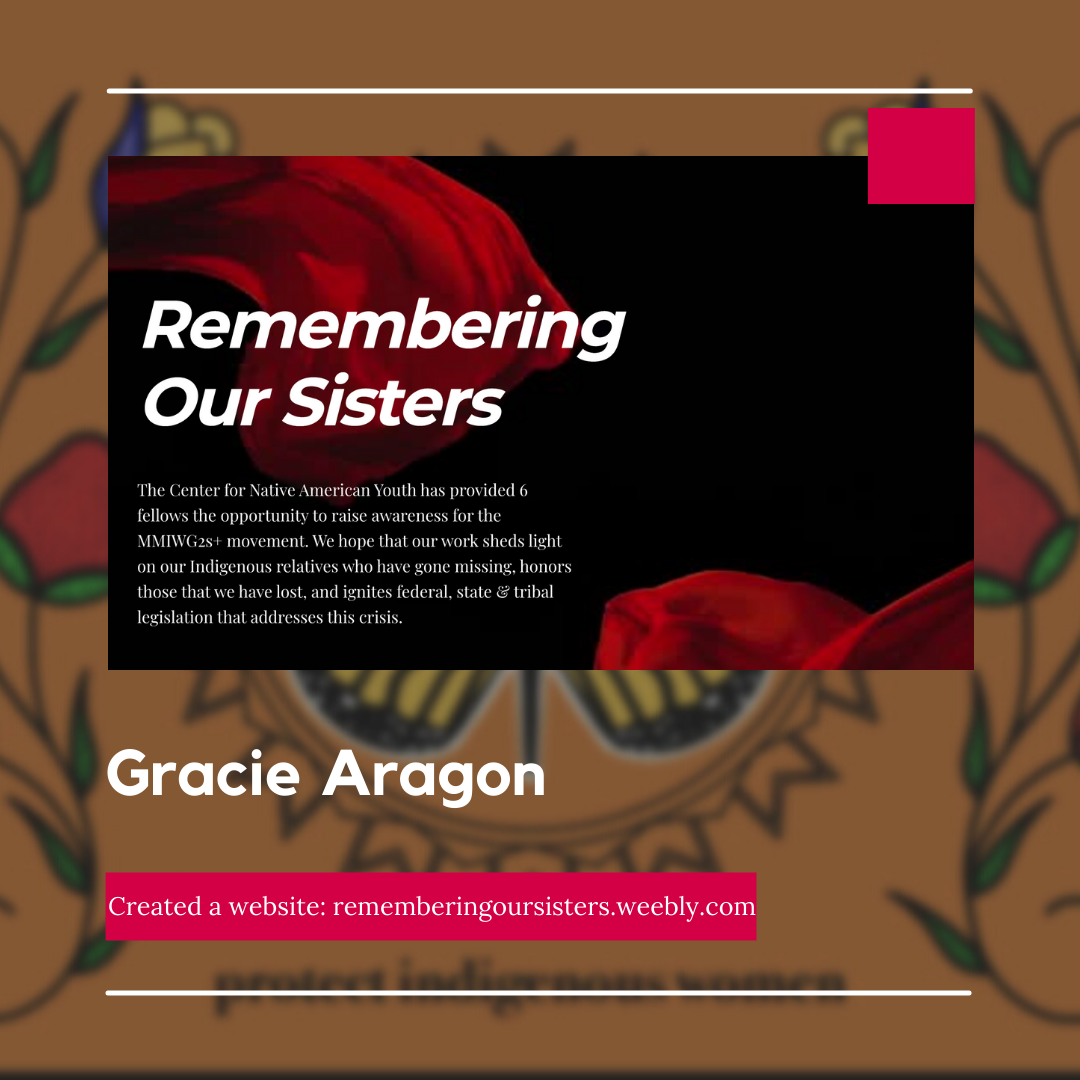
Gracie Aragon (she/her) is from the Pueblo of Acoma, New Mexico. She graduated from Whittier College with a Bachelor’s in Political Science. Gracie is passionate about helping tribal communities in New Mexico advocate for inclusion + accurate representation in the development of policies that directly impact them. In obtaining her degree, she drew from her lived experience of working with Indigenous youth and as a United States Congressional Intern to advocate for Indigenous ways of knowing in a society that perpetuates colonial systems of oppression. During undergrad, she based her work on Indigenous mobilization through cultural sustainability and community building practices. She also co-founded the United Indigenous Peoples & Nations club on campus.
Gracie is an advocate for returning to traditional lifeways, which she feels requires the deconstruction of tools of settler privileges, colonial ideologies and approaches. She is honored to serve as a 2022 Remembering Our Sisters Fellow and hopes to effectively address and raise awareness for the MMIWG2S Nationwide Crisis, honor the sisters we have lost to land + body violence, and advocate for effective, comprehensive policies that protect and ensure quality of life for Indigenous relatives.
About Gracie’s Project, Remembering Our Sisters
The Remembering Our Sisters website aims to provide historical context behind land and body violence, policy advocacy, resource-building and data-management, as well as an accompanying short film created to bring awareness to the MMIWG2S+ crisis. The website provides a more general context in relation to MMIWG2S+, whereas the short film provides specific information shared by community organizers, community mentors, lawmakers and advocates in so-called New Mexico.
The inspiration to create this project stems from an expected outcome to ignite a call to action, as well as wanting to provide one space where various resources can be found. It is meant to center and honor our missing and/or murdered relatives; to seek accountability from state and federal governments to address this matter; and to serve as positive change and a resource for Indigenous Peoples and allies to refer to, engage with and contribute to.


